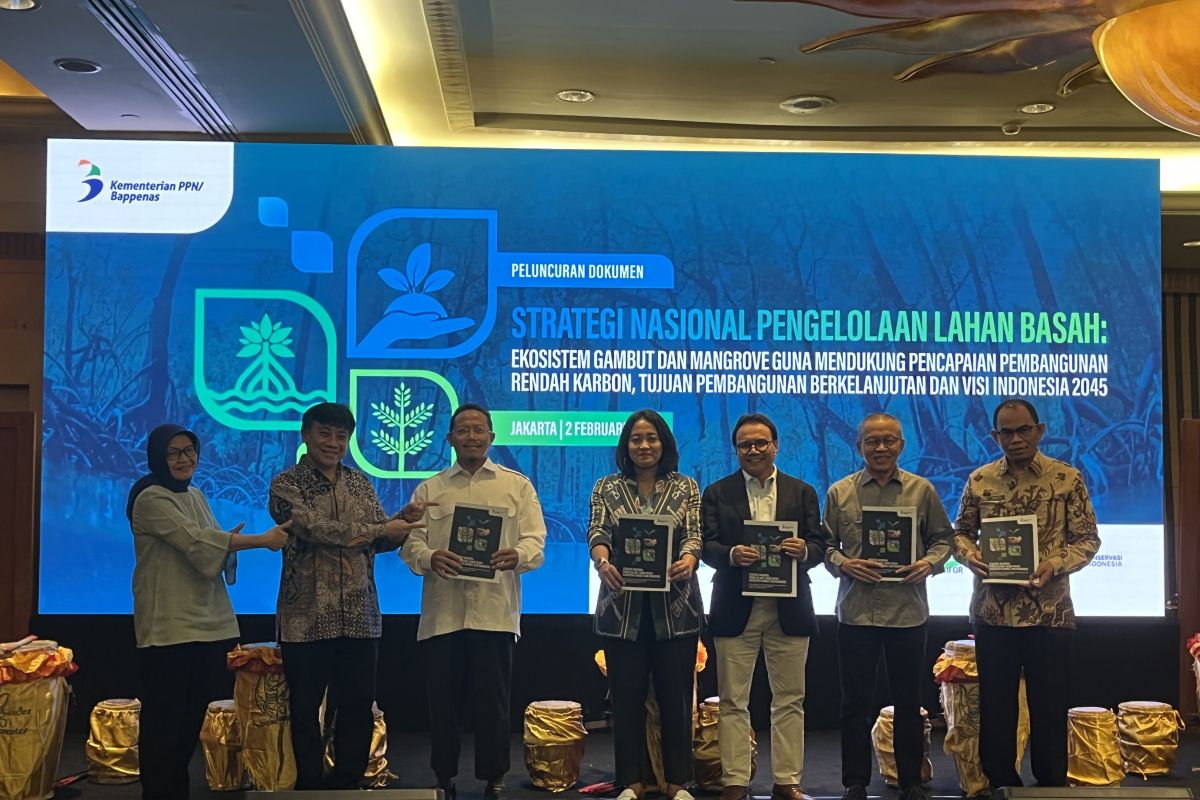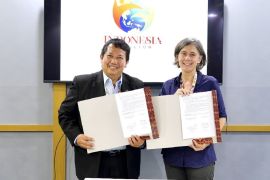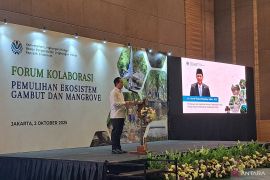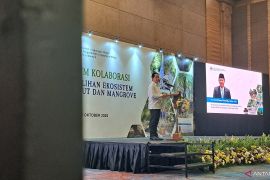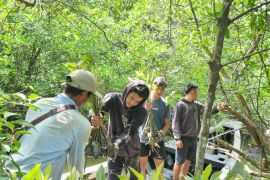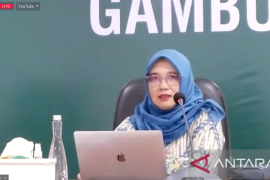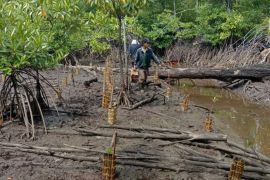In the end, the biodiversity loss crisis also continues to threaten the extinction of one million plant and animal speciesJakarta (ANTARA) - The National Development Planning Agency (Bappenas) unveiled the Wetland Management National Strategy document for Peatland and Mangrove Ecosystem.
Maritime Affairs and Natural Resources' Acting Deputy at Bappenas Vivi Yulaswati expounded that this document serves as a reference for stakeholders to collaboratively manage wetland ecosystems, primarily peatland and mangrove.
"This wetland national strategy document unveiling is very accurate," she remarked virtually during the document unveiling event here, Thursday.
"This is because the effort to manage wetlands still has to be strengthened because the pressure to this ecosystem will be bigger and more real in the future," she emphasized.
The unveiling of the document coincided with the commemoration of 2023 World Wetlands Day themed "Wetland Restoration."
The peatland and mangrove ecosystems face challenges in the wake of the triple planetary crises trend that will continue to occur on this planet.
The triple planetary crisis refers to the three main interlinked issues that humanity currently faces: climate change, pollution and biodiversity loss.
According to the Intergovernmental Panel on Climate Change (IPCC), 50-70 percent of the global population would have potentially been impacted by climate conditions by 2100.
Moreover, the environmental crisis in the form of water, air, ground, and waste pollution had also been causal to 4.2 million deaths annually.
"In the end, the biodiversity loss crisis also continues to threaten the extinction of one million plant and animal species," Yulaswati stated.
In addition, the negative impact of such crises pose various challenges for the management of wetlands.
Wetland ecosystem has a significant influence on the hydrology cycle, which, among others, is caused by temperature and land use changes, increasing coastal vulnerability and pollution, and destruction of shorelines and oceans that will affect ecosystem management.
Non-optimal wetland ecosystem management can also exacerbate the occurring crises since wetland ecosystem is important for other system supporters, especially socio-ecological systems.
Wetland ecosystem is also inseparable from the entirety of the ecosystems in swamp, brackish water, peatland and natural or artificial waters.
This national strategy focuses on two wetland ecosystems -- peatland and mangrove -- which have high potential to store large amount of carbon reserves.
For instance, Indonesia's mangrove ecosystem is the biggest in the world, with 3.2-3.3 million hectares, and can store more than 950 tons of carbon per hectare.
In addition to being a carbon reserve, the mangrove ecosystem serves as a nursery area, wild animal habitat, and protection system for coastal hazards, such as erosion.
"Beyond the mangrove ecosystem, Indonesia also has 13.4 million hectares of peatland ecosystem. Peatland ecosystem also provides various benefits, such as nursery area, for raw materials' provision, as well as a wildlife habitat," she stated.
Related news: Representatives from 14 countries learn peat management in Riau
Related news: RI may lose 26,100 ha mangrove area per year: BRGM
Related news: Govt to push seagrass, mangrove preservation to boost blue carbon
Translator: M Baqir I A, Fadhli Ruhman
Editor: Sri Haryati
Copyright © ANTARA 2023
